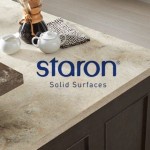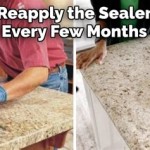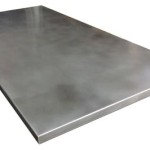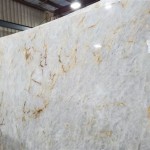Best Sealant For Quartz Countertops: A Comprehensive Guide
Quartz countertops have become a popular choice for homeowners due to their durability, aesthetic appeal, and relatively low maintenance requirements. While quartz is inherently non-porous, the resins used in its manufacturing process and potential micro-fissures can sometimes make it susceptible to staining or damage from spills. Therefore, understanding the necessity of sealing quartz, choosing the right sealant, and applying it correctly are crucial for preserving the countertop’s beauty and longevity.
It is important to clarify that manufactured quartz countertops, often referred to as engineered stone, are not 100% quartz. They consist of approximately 90-95% ground natural quartz and 5-10% resins, polymers, and pigments. This combination results in a surface that is significantly less porous than natural stones like granite or marble. However, the resin binders are the element that can sometimes be impacted by certain substances, necessitating the use of a sealant, especially for lighter-colored quartz or those exposed to frequent spills.
The need for sealing quartz countertops is a subject of debate. Many manufacturers claim that their quartz surfaces are non-porous and do not require sealing. While this holds true for most everyday use, certain situations may benefit from sealant application. Highly porous quartz slabs, often those with a more textured or matte finish, may be more prone to staining. Similarly, kitchens and bathrooms that experience frequent spills of staining agents like coffee, wine, or oil might benefit from the added protection a sealant offers.
Determining the Need for a Quartz Countertop Sealant
Before investing in a sealant, it is important to assess whether your quartz countertops truly need it. A simple water test can help determine the porosity of the surface. Pour a small amount of water onto the countertop and observe how it behaves. If the water beads up and sits on the surface, the countertop is likely well-sealed and doesn't require immediate treatment. However, if the water darkens the stone or is absorbed quickly, it indicates that the surface is porous and would benefit from a sealant application.
Another factor to consider is the finish of the quartz. Polished quartz is generally less porous than honed or textured quartz. The manufacturing process of polished quartz closes the pores on the surface, making it more resistant to stains and spills. In contrast, honed or textured quartz has a more open surface, which can make it more susceptible to staining. If you have honed or textured quartz, you might want to consider sealing it to protect it from damage.
Moreover, the type of use the countertop endures plays a vital role. A countertop used lightly, primarily for decorative purposes, may not need sealant compared to one subjected to constant cooking, food preparation, and potential spills. Frequent contact with acidic substances, such as lemon juice or vinegar, can also gradually degrade the resin in quartz, increasing its porosity over time. For countertops exposed to such conditions, sealing is a proactive measure to prolong their lifespan.
Types of Sealants Suitable for Quartz Countertops
Selecting the right sealant is crucial for achieving optimal protection without damaging the quartz surface. There are several types of sealants available, each with its own advantages and disadvantages. The most common types used for quartz countertops are penetrating sealants and topical sealants. Understanding these types will assist in making the right decision.
Penetrating sealants, also known as impregnating sealants, are designed to penetrate the surface of the quartz without forming a film on top. These sealants work by filling in the pores and micro-fissures within the stone, creating a barrier that prevents liquids and stains from being absorbed. Penetrating sealants are generally considered to be the best option for quartz countertops because they do not alter the appearance or feel of the surface. They also tend to be more durable and long-lasting than topical sealants.
Topical sealants, on the other hand, create a protective film on the surface of the quartz. These sealants provide a barrier against stains and spills, but they can also alter the appearance of the countertop, making it look shiny or glossy. Topical sealants are also more prone to scratching and wear than penetrating sealants. While they offer a level of protection, they are typically not recommended for quartz countertops.
When choosing a penetrating sealant, look for products specifically designed for quartz or engineered stone. These sealants are formulated to be compatible with the resin binders used in quartz countertops. Avoid using sealants that are designed for natural stone, as they may contain ingredients that can damage the resin. The label should clearly state that it is suitable for quartz or engineered stone.
Furthermore, consider the sealant's water-based or solvent-based formulation. Water-based sealants are generally safer to use, as they have low VOC (volatile organic compounds) emissions. Solvent-based sealants, while potentially offering slightly better penetration, release harmful fumes and require proper ventilation during application. For indoor use, water-based sealants are often the preferred choice.
Proper Application Techniques for Quartz Sealants
Even the best sealant will be ineffective if not applied correctly. Follow the manufacturer's instructions carefully for optimal results. Proper preparation and application are essential for ensuring the sealant penetrates the surface evenly and provides adequate protection.
Before applying any sealant, the countertop must be thoroughly cleaned. Remove any dirt, grease, or residue from the surface using a pH-neutral cleaner specifically designed for stone countertops. Avoid using abrasive cleaners, as they can scratch or damage the surface. Once the countertop is clean, rinse it thoroughly with water and allow it to dry completely. Ensure the surface is bone dry before proceeding with the sealant application.
Apply the sealant evenly using a clean microfiber cloth or a sealant applicator pad. Work in small sections, applying the sealant in a circular motion. Follow the manufacturer's instructions regarding the number of coats required and the drying time between coats. Typically, two coats are recommended for optimal protection.
After applying the sealant, allow it to dry completely according to the manufacturer's instructions. This typically takes several hours. Avoid using the countertop during this time, as any spills or stains can interfere with the sealing process. Once the sealant is dry, wipe away any excess sealant from the surface using a clean, dry microfiber cloth. This will prevent any sticky or tacky residue from forming.
Finally, proper maintenance is crucial for prolonging the lifespan of the sealant. Regularly clean the countertop with a pH-neutral cleaner and avoid using abrasive cleaners or scouring pads. Wipe up any spills immediately to prevent staining. Reapply the sealant every 1-3 years, or as needed, to maintain optimal protection.
In conclusion, while quartz countertops are generally durable and low-maintenance, sealing them can provide an extra layer of protection against stains and spills. Determining the need for sealing, choosing the right sealant, and applying it correctly are crucial for preserving the countertop’s beauty and longevity. Following these guidelines will ensure that your quartz countertops remain pristine for years to come.

The Best Sealer For Quartzite Countertops Evolution Of Style

The Best Sealer For Quartzite Countertops Evolution Of Style

Sealer For Quartz Countertops Countertop What To Seal With Lustro Italiano

Do You Need To Seal Quartz Countertops

Caulking My Quartz Bathroom Countertop

How To Seal Your Quartz Countertop

Do You Need To Seal Quartz Countertops

How To Treat Seal Granite Marble Countertops Lesher

Is Sealing Quartz Countertops Necessary Denver Stone Plus

How To Make Homemade Quartz Countertop Cleaner Lesher Inc
See Also








